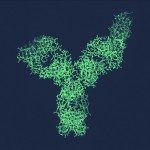Lien vers Pubmed [PMID] – 22650260
Curr. Pharm. Des. 2012;18(30):4648-67
Protein-protein interactions (PPI) are involved in vital cellular processes and are therefore associated to a growing number of diseases. But working with them as therapeutic targets comes with some major hurdles that require substantial mutations from our way to design drugs on historical targets such as enzymes and G-Protein Coupled Receptor (GPCR). Among the numerous ways we could improve our methodologies to maximize the potential of developing new chemical entities on PPI targets, is the fundamental question of what type of compounds should we use to identify the first hits and among which chemical space should we navigate to optimize them to the drug candidate stage. In this review article, we cover different aspects on PPI but with the aim to gain some insights into the specific nature of the chemical space of PPI inhibitors. We describe the work of different groups to highlight such properties and discuss their respective approach. We finally discuss a case study in which we describe the properties of a set of 115 PPI inhibitors that we compare to a reference set of 1730 enzyme inhibitors. This case study highlights interesting properties such as the unfortunate price that still needs to be paid by PPI inhibitors in terms of molecular weight, hydrophobicity, and aromaticity in order to reach a critical level of activity. But it also shows that not all PPI targets are equivalent, and that some PPI targets can demonstrate a better druggability by illustrating the better drug likeness of their associated inhibitors.

